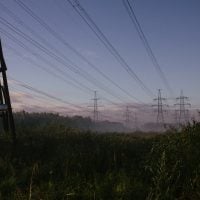Small Island Developing States (SIDS) are a unique group of countries characterized by their small landmass, limited resources, and vulnerability to external shocks. These nations, often located in the Caribbean, the Pacific, and the Indian Ocean, face a myriad of challenges that stem from their geographical isolation and economic fragility. SIDS are not only home to rich biodiversity and cultural heritage but also play a crucial role in global environmental sustainability.
However, their small size and limited capacity often hinder their ability to effectively address pressing issues such as climate change, economic development, and social equity. The significance of SIDS extends beyond their borders; they are vital players in the global conversation on sustainable development. The United Nations recognizes the unique challenges faced by these nations and has established various frameworks to support their development goals.
The 2030 Agenda for Sustainable Development emphasizes the need for tailored approaches to address the specific vulnerabilities of SIDS. As we delve deeper into the challenges faced by these nations, it becomes evident that targeted interventions, particularly through grant programs, are essential for fostering resilience and sustainable growth.
The Challenges Faced by SIDS
Climate Change: An Existential Threat
One of the most pressing issues affecting SIDS is climate change, which poses significant risks to their very existence. Rising sea levels, increased frequency of extreme weather events, and ocean acidification are just a few of the devastating impacts that disproportionately affect these nations.
Economic Vulnerabilities
SIDS also struggle with economic vulnerabilities, relying heavily on a narrow range of industries that make them susceptible to global market fluctuations. For example, the tourism sector in Caribbean SIDS can be severely impacted by global economic downturns or health crises, as seen during the COVID-19 pandemic. Furthermore, limited access to financial resources and technology hampers their ability to innovate and diversify their economies.
Social Challenges and a Cycle of Vulnerability
Social challenges such as high unemployment rates and limited access to education and healthcare services create a cycle of vulnerability that is difficult to break. This economic fragility is further exacerbated by the social challenges, making it even more challenging for SIDS to overcome their development and sustainability hurdles.
The Importance of Grant Programs for SIDS
Given the unique challenges faced by SIDS, grant programs play a pivotal role in supporting their development initiatives. These financial resources provide much-needed funding for projects aimed at enhancing resilience, promoting sustainable practices, and fostering economic diversification. Grant programs can empower local communities by enabling them to implement solutions tailored to their specific needs and circumstances.
For instance, funding for renewable energy projects can help reduce dependence on imported fossil fuels while simultaneously addressing climate change. Moreover, grant programs often facilitate knowledge sharing and capacity building among SIDS. By providing access to technical expertise and best practices from other regions or organizations, these programs can enhance local capabilities and foster innovation.
For example, a grant program focused on sustainable agriculture could connect farmers in SIDS with experts who can introduce climate-resilient farming techniques. This not only improves food security but also strengthens community ties and promotes sustainable livelihoods.
The Green Climate Fund
The Green Climate Fund (GCF) is a key player in financing climate action in developing countries, including SIDS. Established under the United Nations Framework Convention on Climate Change (UNFCCC), the GCF aims to support projects that reduce greenhouse gas emissions and enhance resilience to climate change impacts. For SIDS, this fund represents a critical source of financial assistance for initiatives that address both mitigation and adaptation strategies.
One notable example of GCF support in SIDS is its funding for renewable energy projects in the Pacific Islands. By investing in solar energy infrastructure, these projects not only reduce reliance on imported fuels but also create jobs and stimulate local economies. Additionally, GCF funding has been instrumental in supporting coastal protection initiatives in vulnerable island nations, helping to safeguard communities from the impacts of rising sea levels and extreme weather events.
The GCF’s commitment to providing accessible funding for SIDS underscores its recognition of the unique challenges these nations face in the fight against climate change.
The Adaptation Fund
The Adaptation Fund is another vital resource for SIDS seeking to enhance their resilience to climate change impacts. Established under the Kyoto Protocol, this fund finances projects aimed at helping vulnerable communities adapt to the adverse effects of climate change. For SIDS, where the stakes are particularly high due to their geographical vulnerabilities, the Adaptation Fund provides essential support for initiatives that protect livelihoods and ecosystems.
An illustrative case is the Adaptation Fund’s support for water management projects in Caribbean SIDS. These initiatives focus on improving water supply systems and enhancing agricultural practices to ensure food security amidst changing climatic conditions. By investing in such projects, the Adaptation Fund not only addresses immediate needs but also fosters long-term resilience by empowering communities to adapt to future challenges.
The fund’s emphasis on community-driven approaches ensures that local voices are heard and that solutions are tailored to specific contexts.
The Global Environment Facility Small Grants Program
The Global Environment Facility (GEF) Small Grants Program (SGP) is designed to provide financial assistance to grassroots initiatives that address global environmental challenges while promoting sustainable development. For SIDS, this program offers an invaluable opportunity to support local projects that may otherwise struggle to secure funding from larger sources. The GEF SGP focuses on empowering communities by providing them with the resources needed to implement innovative solutions that align with national priorities.
One successful example of GEF SGP funding in SIDS is its support for community-based marine conservation projects in Fiji. These initiatives engage local fishermen in sustainable fishing practices while promoting biodiversity conservation in coral reef ecosystems. By involving communities directly in project implementation, the GEF SGP fosters ownership and ensures that solutions are culturally relevant and effective.
Such grassroots efforts not only contribute to environmental sustainability but also enhance community resilience by providing alternative livelihoods and strengthening social cohesion.
The United Nations Development Programme’s Small Island Developing States Initiative
The United Nations Development Programme (UNDP) has launched several initiatives aimed specifically at addressing the unique challenges faced by SIDS. The UNDP’s Small Island Developing States Initiative focuses on enhancing resilience through integrated approaches that encompass environmental sustainability, economic diversification, and social equity. This initiative recognizes that addressing the vulnerabilities of SIDS requires a holistic approach that considers the interconnectedness of various sectors.
One notable project under this initiative is the support for disaster risk reduction strategies in Caribbean SIDS. By providing technical assistance and funding for early warning systems and community preparedness programs, the UNDP helps these nations build resilience against natural disasters exacerbated by climate change. Furthermore, the initiative promotes knowledge sharing among SIDS, enabling them to learn from each other’s experiences and best practices in addressing common challenges.
The World Bank’s Small Island States Resilience Initiative
The World Bank’s Small Island States Resilience Initiative aims to strengthen the resilience of SIDS through targeted investments in infrastructure, disaster risk management, and climate adaptation strategies. This initiative recognizes that building resilience requires not only financial resources but also strategic planning and capacity building at all levels of governance. A prime example of this initiative’s impact can be seen in its support for climate-resilient infrastructure projects in Pacific Island nations.
By investing in roads, bridges, and water supply systems designed to withstand extreme weather events, the World Bank helps ensure that communities can recover more quickly from disasters while maintaining essential services. Additionally, the initiative emphasizes collaboration with local governments and communities to ensure that projects align with national development goals and address specific vulnerabilities. In conclusion, Small Island Developing States face a unique set of challenges that require targeted interventions and support from various stakeholders.
Grant programs play a crucial role in empowering these nations to build resilience against climate change while promoting sustainable development. Initiatives such as the Green Climate Fund, Adaptation Fund, GEF Small Grants Program, UNDP’s Small Island Developing States Initiative, and the World Bank’s Small Island States Resilience Initiative provide essential resources for addressing these challenges head-on. By leveraging these opportunities, SIDS can work towards a more sustainable future while preserving their rich cultural heritage and natural resources for generations to come.









































